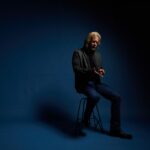“Burning” starts off with Sam Smith in an accapella setting. Smith has this uncanny ability to draw you into a song and make you care about it. The first lyrics go like this:
“No insurance, to pay for the damage
Yeah, I’ve been burning up since you left”
Love is a flame and there are many caveats to it. Sometimes it burns so bright that you can’t control it. There are times where the fire you have for someone is much warmer than the person has for you. As a result, everything inside is left smoldering. You’re trying to pick up the pieces and try to find some semblance to start. New beginnings start where the loss of love ends. “Palace” deals with this very fact. Building memories with someone, watching them leave to become a different version of themselves, but still holding onto that image of who you loved.
When we last left Smith on 2014’s In the Lonely Hour, it was on a somber note. The last tracks, “Not In That Way” and “Lay Me Down” saw Smith completely broken down from unrequited love. Looking at this from movie terms, the start of The Thrill of It All is a continuation. The first song, “To Good At Goodbye,” can be looked upon as a sequel to a movie that picks right up from where the first movie ended.
From a vocal standpoint, Smith is as good as ever. The production from both Steve Fitzmaurice and Jimmy Napes provides enough instrumentation to fill these songs out. The mastery comes in giving Smith’s voice, the best instrument of them all a space to breathe. In “Say It First,” a brief breath of exuberant excitement with Smith and new love, the guitar is faintly in the background cascading against his vocals. Although, not completely there yet, it’s happy to see Smith show a different side of his relationship with love.
There are times on TTOIA where it’s a celebratory to see that Smith is trying to move on. “Baby, You Make Me Crazy,” the 50’s tinged song assisted by The Dap-Kings Horns sees Smith fighting to get back to things that made him whole such as old friends and family.
Some of the best moments come when Smith begins to see outside himself. “Midnight Train” musically plays like someone is traveling on an unknown and dangerous road by themselves for the first time. Guitars, piano, and strings come into play while Smith takes on the role of another person breaking away from a relationship. “No Peace” which is a beautiful duet between Smith and NYC single, Yebba sees two people trying to find reprieve from two different points of circumstances.
“Him” and “Pray” are two songs that give different takes on the same topic, both as a macrocosm and personally. “Him” speaks to those in the LGBT as a whole. It addresses the conflict of choice in religion and who you choose to love. You ultimately cannot choose who you are attracted to. There’s a story line where Smith speaks to that religious view that being gay is wrong and by the end of the song, love wins out. This part of a person should not be looked upon as a sin. To call on Mississippi by name, a region that is noticeably less than tolerant, is a powerful instance of the song as well. It gives a specific viewpoint on what needs to be changed.
“Pray” talks of Smith’s own issues with religion and his vision after his visit to Mosul .Most of Smith’s songs deal with his own personal experiences. However, this song is him realizing that there is more sadness going on the outside than his own. Both songs makes use of choirs which are instruments of the church as a strength. In the end, when we pray, we are all the same. The attention to detail – right down to the music is what gives both these songs lasting power.
With The Thrill of It All, Sam Smith is a little bit more than the person who is followed by a rain cloud. The album is full of tear-jerking ballads, but it offers personal growth. Smith is using his sadness to broaden his world and starting to see through the veil of burning love. If In The Lonely Hour dealt with being present in heart break, Smith’s second album is touching on navigating through the aftermath and being apart of something bigger.













